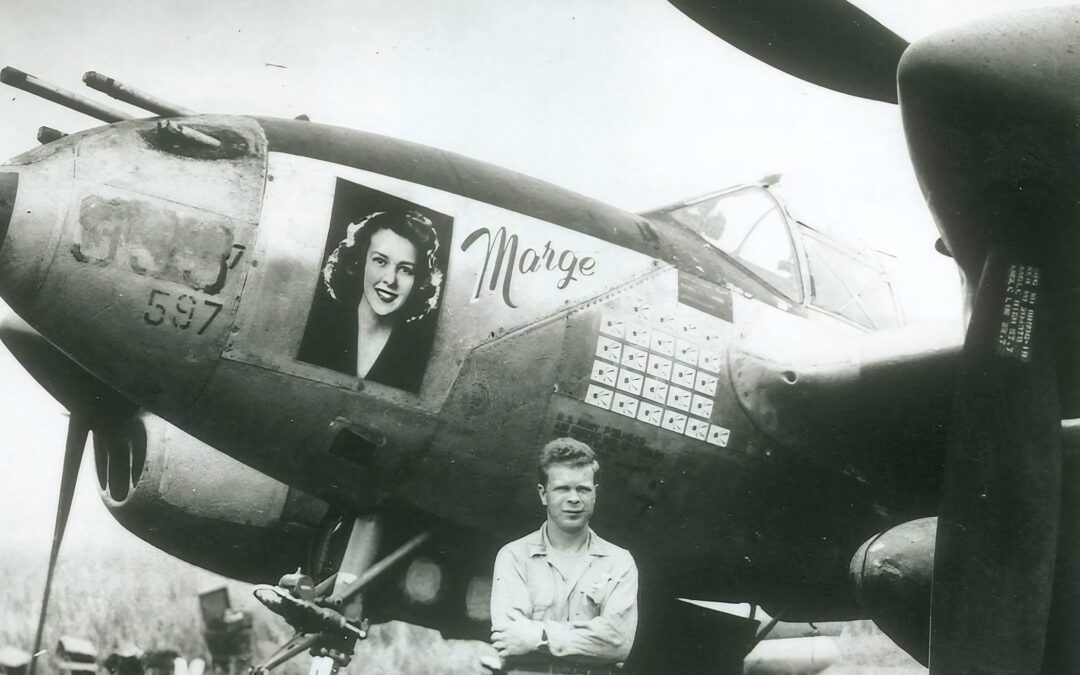Major Richard Ira Bong,
is a decorated pilot of the United States Army Air Forces during World War II. He is a figure of great significance in American military history. Known as America’s “Ace of Aces,” Bong’s exceptional flying skills, courage, and dedication to his country set him apart as one of the greatest fighter pilots of his time. His remarkable achievements and enduring legacy continue to inspire and captivate aviation enthusiasts and historians alike.
Born on September 24, 1920, in Superior, Wisconsin, Bong developed a passion for aviation at a young age. His dream of becoming a pilot led him to enlist in the Army Air Corps Aviation Cadet Program in 1941. Bong’s natural aptitude for flying quickly became apparent, and he was soon recognized as one of the most promising pilots in his class.
Bong’s exceptional skills as a fighter pilot
… were put to the test during World War II. Flying the Lockheed P-38 Lightning, Bong demonstrated extraordinary skill and bravery in the face of intense aerial combat. His ability to outmaneuver and outgun enemy aircraft earned him a reputation as a formidable adversary.
Bong’s most notable achievement was becoming America’s top-scoring ace of World War II. He shot down a staggering 40 enemy aircraft, a record that remains unbeaten to this day. Bong’s exceptional marksmanship and tactical prowess made him a symbol of American heroism and a beacon of hope during a time of war.
Despite his impressive record,
Bong was known for his humility and dedication to his fellow pilots. He often downplayed his achievements, instead focusing on the collective efforts of his squadron. Bong’s leadership and camaraderie earned him the respect and admiration of his peers.
Bong’s remarkable achievements did not go unnoticed. He was awarded the Medal of Honor, the highest military decoration awarded by the United States government. The citation praised Bong’s “aggressiveness and daring” and his “conspicuous gallantry and intrepidity in action above and beyond the call of duty.”
Tragically, Bong’s life was cut short on August 6, 1945, when he died in a plane crash during a test flight in California. His death was a significant loss to the aviation community and the nation as a whole. Bong was posthumously promoted to the rank of Major and was buried with full military honors.
Richard Bong’s legacy
extends far beyond his impressive aerial victories. He played a significant role in shaping the tactics and strategies of aerial warfare, leaving a lasting impact on future generations of fighter pilots. His exceptional skill, courage, and dedication to his country continue to inspire and serve as a testament to the sacrifices made by those who serve in the military.
In conclusion, Major Richard Ira Bong was a true American hero. His remarkable achievements as a World War II fighter pilot have left an indelible mark on American military history. Bong’s unwavering dedication, courage, and humility continue to inspire and serve as a shining example of what can be accomplished through skill, bravery, and a strong sense of duty.


What You have to say